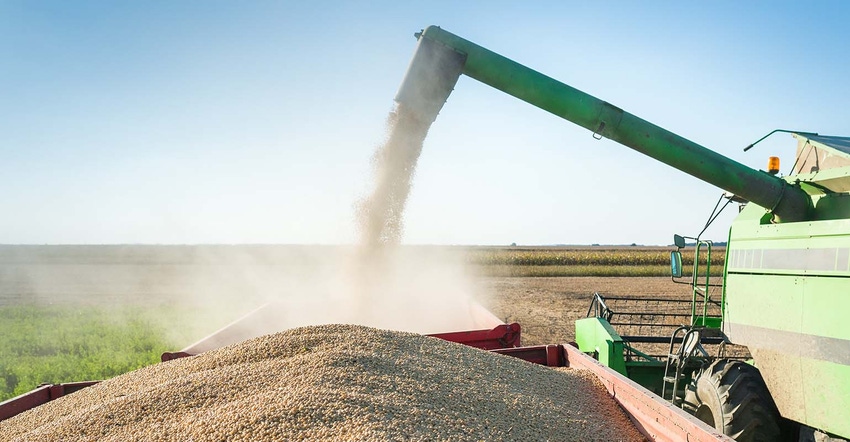U.S. trade woes empowering South America
Congressional delegation reveals that China is happy to buy South American soybeans during current trade war.
May 2, 2019

“As competitive as the South Americans are, they will only become stronger with time, and our missteps on trade policy are only helping them along in that effort,” House Agriculture Committee chairman Collin Peterson (D., Minn.) explained.
Peterson just returned from a bipartisan delegation of members of Congress, who met with President Jair Bolsonaro of Brazil and President Mauricio Macri of Argentina last week as part of a trip to review the agricultural trading relationships between the U.S. and those nations as well as what downstream effects the changes in U.S. trade policy are having on competing producers in South America.
The delegation also met with U.S. armed forces personnel stationed at Joint Task Force Bravo and Soto Cano Air Force Base in Honduras.
“Brazil and Argentina have been both strategic allies in Western Hemisphere politics and strong competitors in ag markets,” Peterson said. “I wanted to see firsthand the state of our relationship with these countries as well as the state of their agriculture industries to determine what openings the Administration’s trade policy has created for our competition.”
In Brazil, the delegation toured corn, cotton and soybean production regions and reviewed the industry's infrastructure capacity to meet export demand.
“We were fortunate to see a lot of Brazilian agriculture, and one thing that stood out was the quality of the crop there,” Peterson said. “These guys are double-cropping corn and cotton and getting fantastic yield on both, with a good-looking crop. They’ve got, in many cases, better access to new traits and new technologies than our guys, and they’re right on our heels.”
While speaking at a Farm Foundation forum on trade on April 30, Dan Kowalski, vice president of CoBank’s Knowledge Exchange unit, noted that the current trade skirmishes are incentivizing production in South America and the Black Sea region.
“The reality is, as long as we are disrupting markets, and as we’ve encouraged China to put a tariff on some of our products, it’s given all the incentive in the world to expand soybean acres. I foresee that happening for several years,” Kowalski said.
Peterson added, “Right now, it costs the Brazilians as much as twice what it costs us to ship soybeans to China, so we’ve still got an advantage, but we’ve got to invest in our own infrastructure — things like locks and dams and ports — if we want to stay ahead of them.”
During meetings with Bolsonaro, the delegation learned that Brazil is looking to attract billions in private investment to improve the country’s infrastructure and, in particular, the capacity of its agricultural supply chain.
“President Bolsonaro is actively looking to close that gap, and there are plenty of investors in places that demand the products that our countries produce who are willing to step in and provide the funding to do it,” Peterson said.
In Argentina, the delegation spoke with Macri as well as members of the biodiesel processing and soybean industries on the landscape facing domestic agriculture.
“We also heard a lot about biodiesel in Argentina,” Peterson said. “The folks in Argentina face a strange situation: Because of the government’s tax structure, at times it has been cheaper for them to produce and export biodiesel to the U.S. than it is to sell it there in Argentina. In 2018, our Commerce Department put antidumping duties on Argentine biodiesel, which lowered how much they sold to the U.S. Then, their government raised their export tax from 8% to 15% to match the 15% export tax on whole soybeans. What’s helping to relieve the pressure is that the export taxes on whole soybeans and soybean meal are now even, so they are exporting more beans to the Chinese. What’s unfortunate for our farmers is that some of those sales are beans the Chinese used to buy from us.
“It’s only a matter of time before investments to improve infrastructure cut in to our competitive advantage, and the Chinese are happy to buy everything the South Americans can grow until we figure our trade mess out. That doesn’t fill me with a lot of confidence,” Peterson said.
You May Also Like



